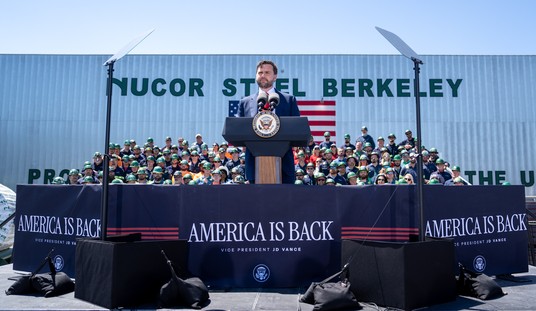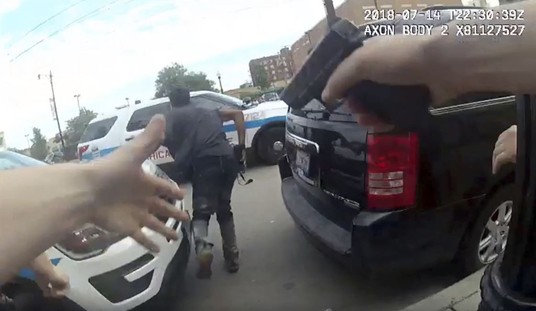FBI Director James Comey spoke to a group of police chiefs in San Diego Sunday. Director Comey used the opportunity to push back against the Black Lives Matter narrative that a handful of video clips demonstrate “an epidemic” of police violence against black Americans.
Comey was careful not to attack protesters who he described repeatedly as “people of good will” but he did openly question the narrative being created by the protest movement and amplified by the media. Comey’s remarks as delivered were published on the FBI’s website:
Many people of good will in this country—decent, caring people—believe with all their hearts that American law enforcement is using deadly force against black people at epidemic levels. The leaders we need know Americans believe that because those are the videos they see, over and over and over again. To these Americans, people of good will and good hearts, each video becomes further proof of nationwide police brutality. People of good will are protesting—including here in San Diego—because they believe there is an epidemic of police violence against black people.
Of course, however good their hearts, however good their intentions, Americans actually have no idea whether the number of black people or brown people or white people being shot by police is up, down, or sideways over the last 10 years. They have no idea whether black people or brown people are more likely to be shot during encounters than white people are. There is actually some recent research from a Harvard economist who focused on 10 major departments, analyzing over 1,000 shootings showing lethal force is more likely to be used against white people, while non-lethal force is more likely to be used against black people. But we really don’t know well enough on a national basis.
There were 10.7 million arrests in this country last year, and many times that number of encounters between officers and civilians. Out of those tens of millions of encounters, how many people were shot? What did they look like? What were the circumstances? Is deadly force use trending up or down? Where is it worst and where is it best? Nobody knows.
Comey went on to say that in the absence of information, “we have anecdotes, we have videos, we have good people believing something terrible is going on.” He added, “In a nation of almost a million law enforcement officers and tens of millions of police encounters each year, a small group of videos serve as proof of an epidemic.” That media-driven narrative, Comey said, “divides us” and keeps, “good officers in their cars and good people in their homes, separated by a chasm of fear and distrust.”
As Comey sees it, there are several negative results that stem from the propagation of this narrative about police. First, “self-initiated police activity is on the decline in our most violent cities.” This is the so-called Ferguson effect which leads police to hesitate and wonder if initiating action could “get me famous or dead?” As police ask themselves that question, policing changes and becomes less proactive.
Second, fewer cases are closed as the lack of trust makes members of the public less willing to tell police what they’ve seen. As Comey puts it, “they aren’t going to offer the tips, they aren’t going to whisper to the cop that they saw the up-close shooting.”
And third, fewer people see the police as a force for good and so the recruitment of good cops becomes more difficult:
Who would chose to do this work? Who would choose to do something decried as inherently racist? Who would choose to risk getting famous or dead? Why on earth would a talented young person choose that life when they could choose a “respectable” profession?
These questions should haunt us as law enforcement leaders, because this country will be deeply sorry if that young talent—kids who want to help others—chooses some other way to serve. We need great teachers, and nurses, and social workers. But we also need great people of character and talent out there where the stakes are highest—where single moms are trying to find a life for their families, where a good kid needs a second chance, where old people want to sit on the porch, where there really are predators trying to kill people. We need talent there.
The Department of Justice announced a pilot program last week to track information on police shootings. Video of Comey’s remarks was posted online, but the quality is remarkably poor. A tracking box surrounds Comey’s face for about half of this clip and there seem to be gaps in the audio as well.
https://www.youtube.com/watch?v=qh_dQZtKgpg









Join the conversation as a VIP Member